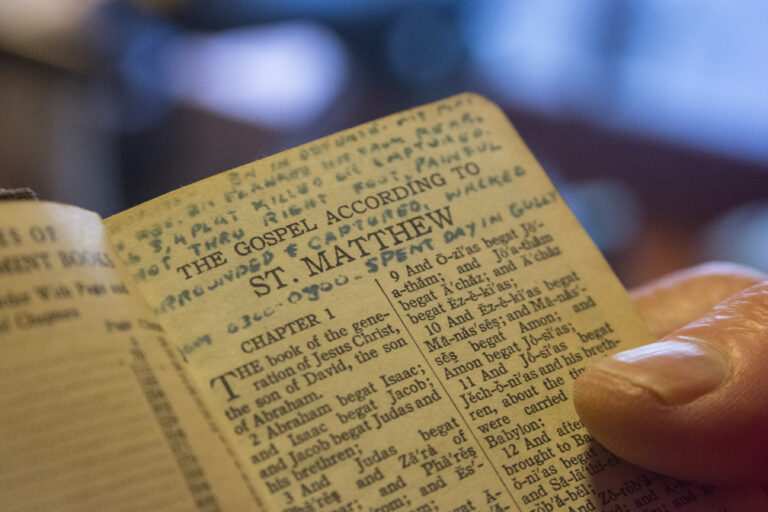
The Chinese Communist Party (CCP) has embarked on an audacious 10-year project to rewrite the Bible, the Quran and other religious texts as part of Chairman Xi Jinping’s grand strategy to harness religion in service of the party.
In Henan province, local CCP officials have forced Protestant churches to supplant the Ten Commandments with quotes from Xi Jinping himself, effectively transforming divine commands such as “Thou shalt have no other gods before Me,” to political statements, such as, “Resolutely guard against the infiltration of Western ideology.”
In 2020, a Chinese university textbook offered a potential glimpse of how the Chinese Communist Party might rewrite the Bible, when the textbook changed a story about forgiveness and mercy from the Gospel of John.
While the passage records Jesus saying, “Let the one among you who is guiltless be the first to throw a stone at her,” the Chinese university textbook revealed a chilling alteration: Jesus, rather than demonstrating compassion, stones the accused woman to death.
In the CCP’s ongoing quest to against religion, the story of grace was revised, providing an alarming indication of what the CCP’s final project could entail.
According to Rep. Mike Gallagher (R-Wis.), Xi’s interpretation of religion seemingly does not object to worshiping a deity, as long as Xi and the CCP are in the position of God.
Despite the glaring affront to religious liberties, global religious leaders such as Pope Francis have surprisingly offered little resistance. In a 2018 secret negotiation, the Vatican reportedly consented to the CCP’s authority to select Catholic bishops in China, seemingly trading off the church’s spiritual autonomy for unspecified guarantees of congregational “safety.”
The CCP’s control over religion extends to Tibetan Buddhism, as well, as they claim the authority to select the next Dalai Lama, traditionally a sacred Tibetan tradition. Tibetan Buddhists fiercely resist this infringement, but the CCP justifies their stance by claiming that even Pope Francis accepts the party’s authority over religious activities.
READ MORE: China conducts a 100-day ‘strike hard’ campaign against Uyghurs
One of the CCP’s most blatant attacks on religious freedom is demonstrated in its oppression of minority groups. In the far west, particularly in Xinjiang and Tibet, Muslims and Buddhists are currently confronting an aggressive campaign aimed at the eradication of their faith, and in some instances, their population. Gallagher notes that China’s brutal suppression of religion is recognized by many as a form of genocide.
Nevertheless, religious freedom continues to persist resiliently amidst China’s persecution methods. Testimonies of underground churches, brave clergy, and unyielding believers depict an enduring faith under severe repression.
The struggle is not just about religion, according to Gallagher; it is a fight for the human spirit and the ability to reach for something beyond the CCP’s autocracy.
One Chinese pastor stated, “In this war, in Xinjiang, in Shanghai, in Beijing, in Chengdu, the rulers have chosen an enemy that can never be imprisoned – the soul of man.”
This news article was partially created with the assistance of artificial intelligence and edited and fact-checked by a human editor.
0 comments :
Post a Comment